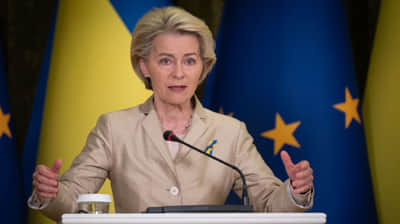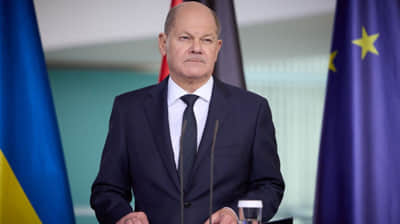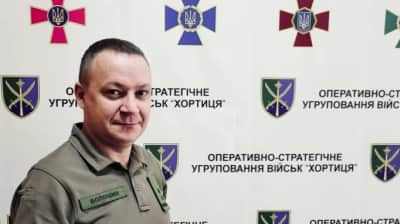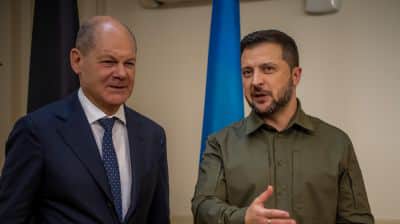Presidential Advisor: Negotiations with Russia ongoing, stereotypes are difficult to break
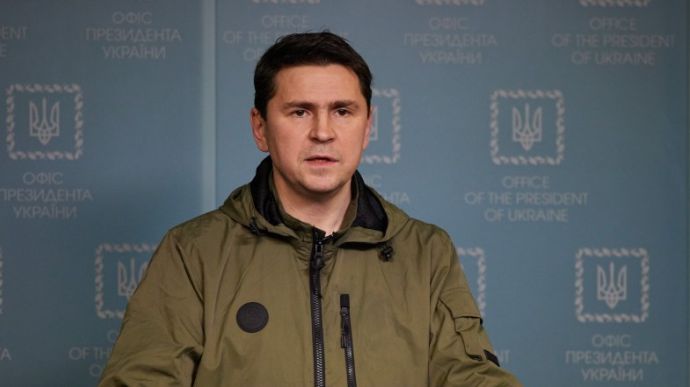
Olena Roshchina – Tuesday, 22 March 2022, 08:01
Mykhailo Podoliak, Advisor to the Head of the Office of the President of Ukraine and participant in the peace talks between Ukrainian and Russian delegations, said that online negotiations continue every day and that Ukraine will not make concessions on questions of its territorial integrity.
Source: Mykhailo Podoliak in an interview for BBC
According to Podoliak: "Online negotiations are ongoing. There are many contentious issues since the President [President Zelenskyy of Ukraine] has clearly staked out our position with respect to territorial integrity and fundamental security guarantees – issues that are important to us. Negotiations are ongoing in the online format, many advisory groups are involved in this process…
The structure of the negotiations really is complex. There is a negotiation group that everyone is familiar with, but there are many other groups working in different formats. We have political advisors, and not just Russian or Ukrainian advisors, but third-party advisors too; there is Andriy Yermak [Head of the Presidential Administration] who works with political advisors from countries that can serve as security guarantors…
Political advisors are actively working in consultation mode. In addition, there are legal groups that have to verify everything, and consultation groups that analyse the potential response of the Ukrainian public."
Details: Podoliak stressed that the delegations have agreed not to discuss the progress of the "document" [the agreement] until the compromise is agreed by both sides.
Podoliak said that the Russian side often puts out information about the negotiations designed to exert psychological pressure on the Ukrainian side and incite conflict in the Ukrainian society.
According to Podoliak: "The position [in the negotiations] of the Russian Federation is essentially built on propaganda; they have created their own illusion of how the world works. The position of Ukraine, meanwhile, announced by President Zelenskyy is based on the key values of territorial integrity and sovereignty. Full stop.
As for the negotiation process itself – it is ongoing so that we can find where and what we can agree on. If we can’t reach an agreement, we will just say that.
But for now the negotiation process continues and any careless word…It is a very difficult process. And to say something now to create some hype, it would be bad, wrong.
The President has clearly said that territorial integrity and sovereignty are the foundation of the state. I see no point in talking through the fundamentals of the Russian position. They can say whatever they want to. It is their position. It is our position that’s at stake, and our position is being defended on the battlefield. Ukraine is not making any concessions because it is a question of our freedom and our integrity."
Details: Podoliak added that he did not know what the Russian Federation was prepared to do.
But he believes that Russians do not have a good understanding of today’s world and of Ukraine. Russia’s weak analytical insights and incorrect assessment of resources – its own and Ukraine’s – before the war led it to "fatal mistakes."
"It is difficult for them to let go of these prejudiced opinions which they have lived with for the last 8 years. They have made fatal decisions according to this propagandist illusion, and still find it difficult to admit to themselves that they were wrong. This makes it difficult, it affects the negotiations, because you have to assess the real world from a more sensible, more pragmatic stance," Advisor to the Head of the Office of the President of Ukraine added.
Podoliak also said that 25 days of war and of Ukraine’s fortitude and determination have led Russians to perceive reality more accurately.
"I wouldn’t say that they finally understand what the positions [of everyone involved in the war] are, but this [their nascent, partial understanding] allows us to at least have a conversation," Podoliak noted.

